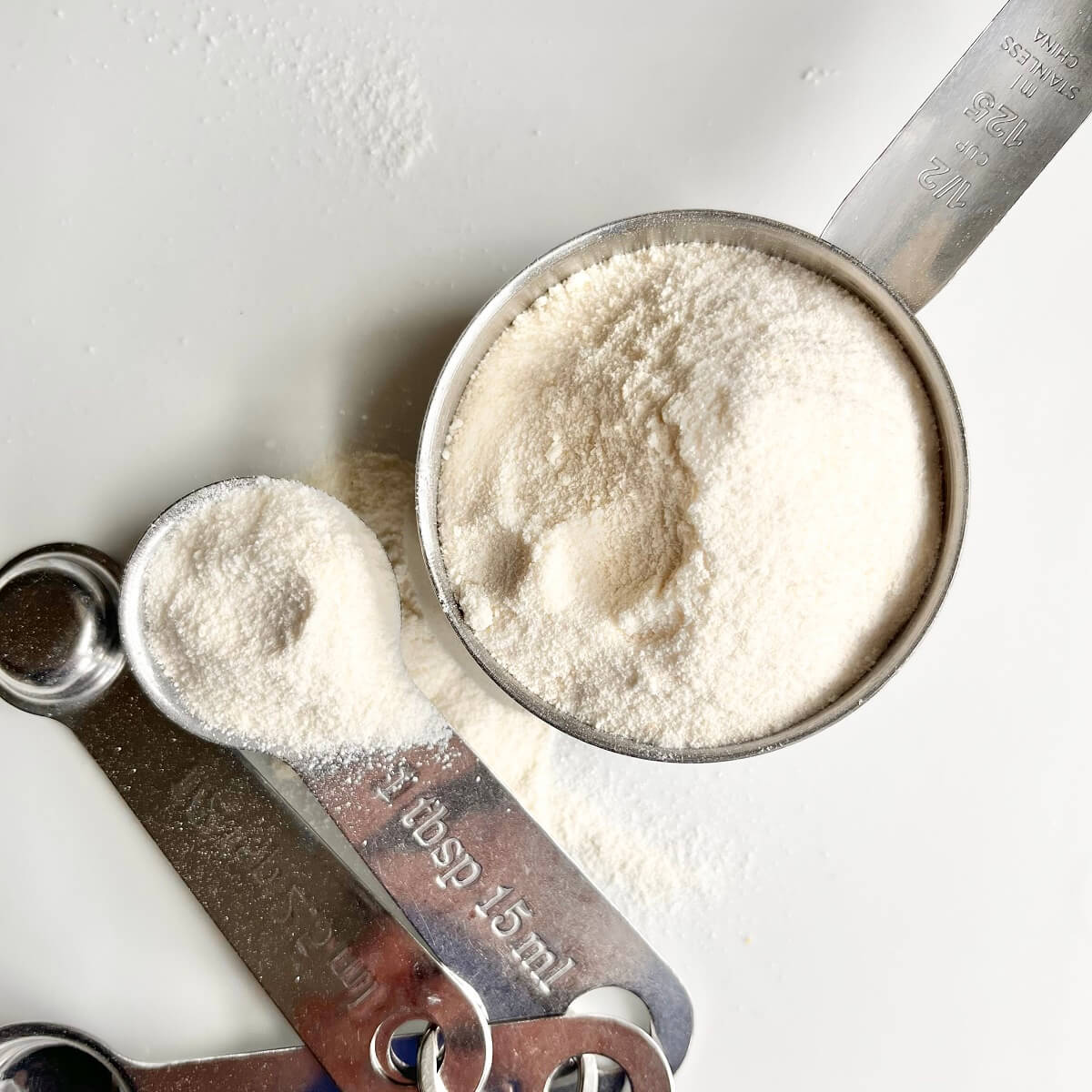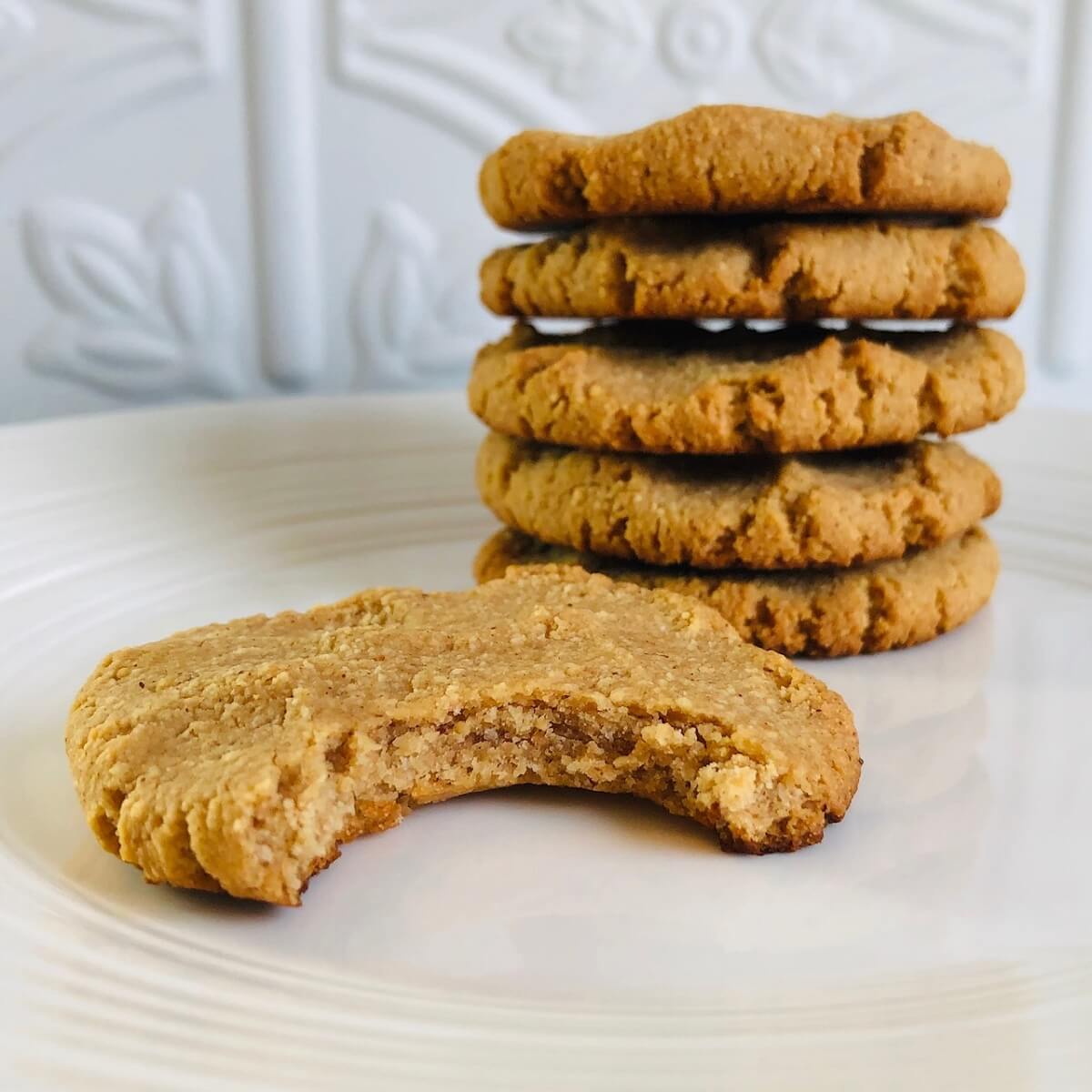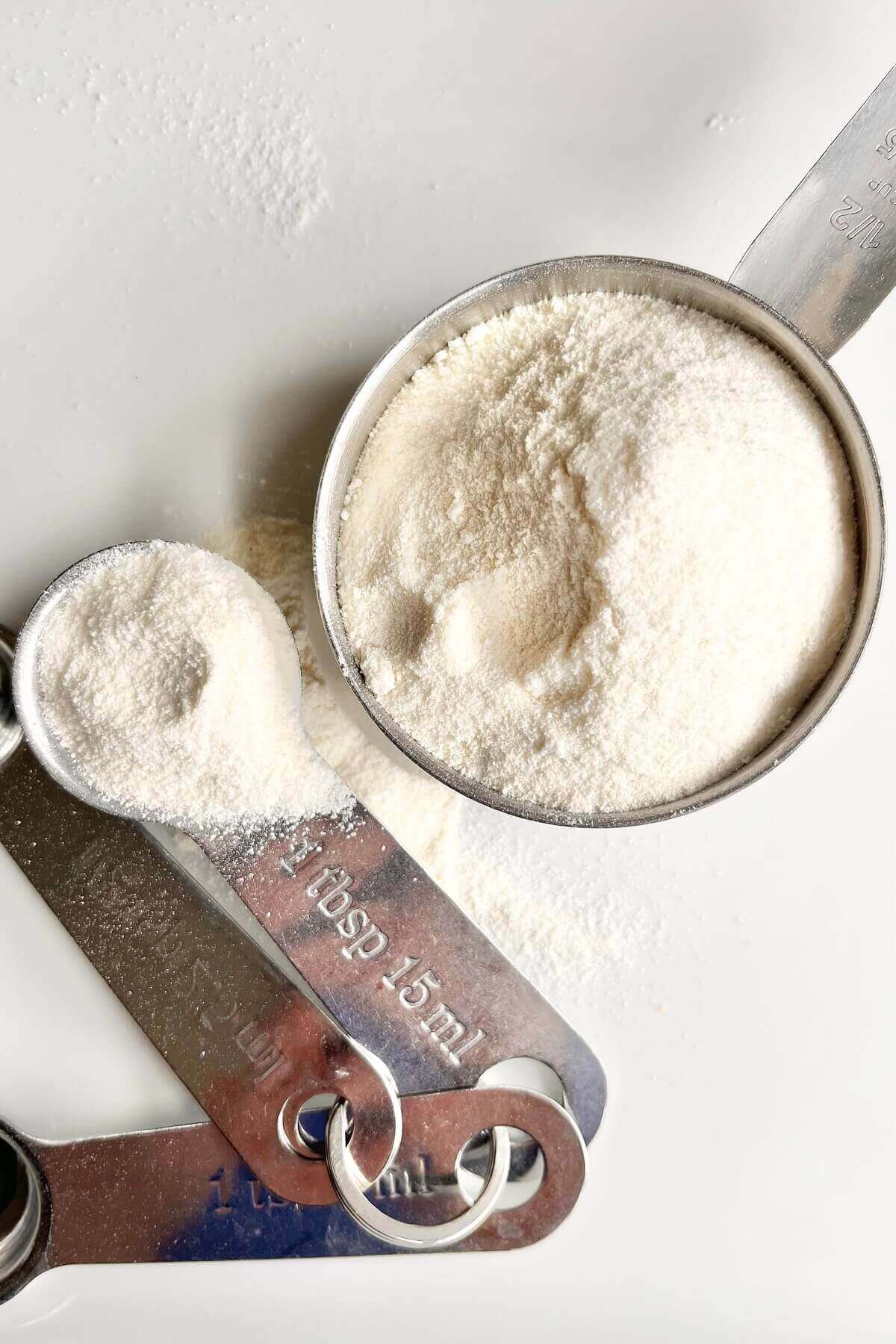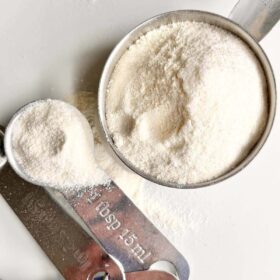Are you following a Paleo diet and missing your favorite baked goods? Don’t worry, you can still indulge in delicious treats by using Paleo flours as a substitute for traditional wheat flour. These flours are not only grain free and gluten free, they’re also nutrient dense and offer a unique flavor and texture to your baked goods.
Popular Paleo Flours
From almond flour to coconut flour and cassava flour, there are many nutritious and delicious grain-free, gluten-free, Paleo flours that can be used in a variety of dishes.

1. Almond Flour
Almond flour is a popular ingredient in Paleo recipes, as it is a great alternative to traditional wheat flour. Almond flour is made by grinding blanched almonds into a fine powder, and it can be used in a variety of recipes, from baked goods to savory dishes.
One of the benefits of using almond flour in Paleo recipes is that it is high in nutritious fats, protein, and fiber, making it a nutrient-dense choice. Additionally, almond flour is gluten free and low in carbohydrates, making it a great option for those following a Paleo or low-carb diet.
Some popular recipes that use almond flour in Paleo cooking include almond flour pancakes, almond flour bread, and almond flour pizza crust. Almond flour can also be used as a breading or to make delicious desserts like almond flour brownies and almond flour cookies.
Almond flour is a versatile and nutritious ingredient that is a great choice for those looking to follow a Paleo or low-carb diet. So, next time you’re in the kitchen, consider swapping out traditional wheat flour for almond flour and enjoy the nutritional benefits and delicious flavor it provides.
2. Coconut Flour
Coconut flour is another popular ingredient in Paleo recipes. Coconut flour is made by grinding dried coconut meat into a fine powder, and it can be used in all sorts of sweet and savory recipes.
One of the benefits of using coconut flour in Paleo recipes is that it is high in fiber, which can help with digestion and promote feelings of fullness. Additionally, coconut flour is low in carbohydrates and has a low glycemic index, making it a great option for those following a Paleo or low-carb diet.
Some popular recipes that use coconut flour in Paleo cooking include coconut flour pancakes, coconut flour bread, and coconut flour pizza crust. Coconut flour can also be used as a thickener in sauces and soups, and it can be used to make delicious desserts like this chocolate black bean cake or these yummy coconut flour peanut butter cookies.

When using coconut flour in recipes, it is important to note that it absorbs more liquid than traditional wheat flour, so recipes may need to be adjusted accordingly. Additionally, some people find that the flavor of coconut flour can be quite strong, so it is important to use it in recipes where its flavor complements the other ingredients.
3. Cassava Flour
Cassava flour is another popular ingredient in Paleo recipes. Cassava flour is made by grinding the root of the cassava plant into a fine powder, and it can be used in a wide variety of recipes.
One of the benefits of using cassava flour in Paleo recipes is that it is high in fiber, which can help with digestion and promote feelings of fullness. Additionally, cassava flour is low in carbohydrates and has a low glycemic index.
Some popular recipes that use cassava flour in Paleo cooking include cassava flour tortillas, cassava flour bread, and cassava flour pizza crust. Cassava flour can also be used as a thickener in sauces and gravies, and it can be used to make delicious desserts like cassava flour brownies and cassava flour cookies.
When using cassava flour in recipes, it is important to note that it has a different texture than traditional wheat flour, so recipes may need to be adjusted accordingly. Additionally, cassava flour has a slightly sweet and nutty flavor, which can add a unique taste to recipes.
4. Tigernut Flour
Tigernut flour is a lesser-known Paleo flour that is gaining popularity for its unique flavor and nutrition benefits. Tigernuts are not actually nuts, but rather small root vegetables that are high in fiber, protein, and healthy fats.
Tigernut flour is a great source of resistant starch, which is beneficial for gut health. Resistant starch feeds the good bacteria in your gut and can improve digestion.
Tigernut flour is high in fiber, which can help to regulate blood sugar levels and promote feelings of fullness. Tigernut flour has a slightly sweet and nutty flavor that works well in a variety of Paleo recipes, from bread and cakes to muffins and cookies.
Tigernut flour is a good source of magnesium, which is an important mineral that plays a role in bone health, muscle function, and heart health.
When using tigernut flour in your baking, keep in mind that it has a dense texture and may require more liquid than other paleo flours. It’s also important to note that tigernut flour can be higher in calories than other Paleo flours, so it’s best to use it in moderation.
5. Arrowroot Flour
Arrowroot flour is a popular ingredient in Paleo baking. It’s a gluten-free and grain-free flour that is made from the starchy roots of the arrowroot plant.
Arrowroot flour is a good source of resistant starch, has a neutral flavor, and creates a smooth and creamy texture. It’s a versatile ingredient that can be used in a wide range of Paleo recipes, from bread and pancakes to cakes and cookies.
When using arrowroot flour in your baking, keep in mind that it has a lighter texture than many other Paleo flours, so it may not work well in recipes that require a dense or chewy texture. It’s also important to note that arrowroot flour can be high in carbohydrates, so it’s best to use it in moderation and balance it with other paleo-friendly flours like coconut flour or almond flour.
6. Green Banana Flour
Green banana flour is a versatile and nutritious Paleo flour that is made from unripe bananas. Unlike ripe bananas, which are high in sugar and carbohydrates, green bananas are low in sugar and high in resistant starch, making them a great ingredient for Paleo baking.
Green banana flour is high in fiber, which can help to regulate blood sugar levels and promote feelings of fullness. It’s also a good source of potassium. Green banana flour has a neutral flavor that works well in a variety of Paleo recipes, from bread and cakes to pancakes and waffles.
When using green banana flour in your baking, keep in mind that it absorbs more liquid than other Paleo flours, so you may need to adjust the liquid ingredients in your recipe. Since green banana flour can be higher in carbohydrates than some other Paleo-friendly flours, it’s best to use it in moderation.
Wrapping Up: Paleo-Diet-Friendly Flours
Using these Paleo flours in your baking will not only make your treats nutritious, they’ll also add unique flavors and textures. Experiment with different combinations and ratios to find the perfect blend for your recipes.

You Might Also Like
- This guide to Paleo sweeteners is helpful if you’re in the mood for a treat but want to stick to your paleo diet.
- These mouthwatering Paleo chocolate cookies are grain free, gluten free, and dairy free.
